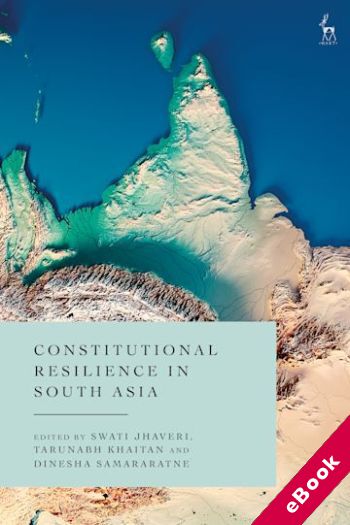
The device(s) you use to access the eBook content must be authorized with an Adobe ID before you download the product otherwise it will fail to register correctly.
For further information see https://www.wildy.com/ebook-formats
Once the order is confirmed an automated e-mail will be sent to you to allow you to download the eBook.
All eBooks are supplied firm sale and cannot be returned. If you believe there is a fault with your eBook then contact us on ebooks@wildy.com and we will help in resolving the issue. This does not affect your statutory rights.
South Asia has had a tumultuous and varied experience with constitutional democracy that predates the recent rise in populism (and its study) in established democracies. And yet, this region has remained largely ignored by constitutional studies and democracy scholars.
This book addresses this gap and presents a contribution to the South Asia-centric literature on the topic of the stability and resilience of constitutional democracies. Chapters deal not only with relatively well known South Asian countries such as India, Bangladesh, Pakistan, and Sri Lanka, but also with countries often ignored by scholars, such as Bhutan, Nepal, Maldives, and Afghanistan.
The contributions consider the design and functioning of an array of institutions and actors, including political parties, legislatures, the political executive, the bureaucracy, courts, fourth branch / guarantor institutions (such as electoral commissions), the people, and the military to examine their roles in strengthening or undermining constitutional democracy across South Asia. Each chapter offers a contextual and jurisdictionally-tethered account of the causes behind the erosion of constitutional democracy, and some examine the resilience of constitutional institutions against democratic erosion.